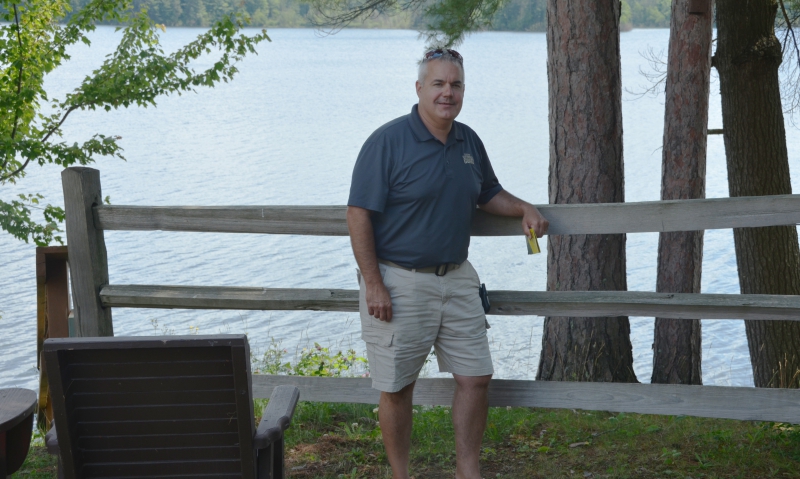
New Camp American Legion director has witnessed first-hand the healing power of the facility.
Don Grundy has spent 15 years on active duty and a total of 26 years serving in the Army National Guard. He’s also served in a leadership position in the USO and as a project manager for Hunzinger Construction, a multimillion dollar company.
His experience doing all that likely will come in handy in his new occupation: director of Camp American Legion in Wisconsin, which last year had more than 1,400 visitors.
Grundy began working at the rehabilitative camp earlier this year after eight-year director Kevin Moshea retired. A member of American Legion Post 416 in Greendale, Wis., Grundy recently spoke with The American Legion Media & Communication Division about what he sees as the healing power of the camp and his vision for it going forward.
The American Legion: You were familiar with Camp American Legion before expressing an interest in the director’s position, correct?
Don Grundy: I was the Wisconsin Army National Guard suicide prevention program manager for the last six years. That’s how I got to know the camp. We came up here. We teach a class called ASIST (Applied Suicide Intervention Skills Training), and we have been coming up here the last four years teaching ASIST Memorial Day weekend with all of our soldiers and families. That’s how I got to know camp and Kevin.
Q: What was your first impression the first time you set foot at the camp?
A: My first impression was “wow, what a place.” I love it up here. This is the only place I’ve gone – and I’ve traveled a lot – where my heart and my mind are at peace together. So when I pulled into camp I thought, “This is a perfect fit. We’ve got to do more here.” So we tried to get more events here, and we did. There’s a lot events now with the National Guard – Army and Air – that happen here.
Q: Have you seen the healing effect this place can have on people?
A: We did a class right here where people are sharing their experiences and stories about suicide, or someone they lost to suicide or their own feelings about suicide. We’re sitting here -- what better setting to do that? And the response we got from our participants: “Can we come back for a second class?” They’re wanting to come back. That speaks volumes.
Q: How do you get more people to learn about what Camp American Legion offers?
A: Never stop promoting. We went and did three parades this last week just to get out and engage the community and say, “Hey, we’re here if you didn’t know that,” and “We’re still here if you didn’t know that.” Not too long ago … this (camp) was the best-kept secret in the state.
Q: What is your vision for the camp going forward?
A: We’ve got the state leadership, and obviously when we sit down and talk vision we do that together. We did strategic planning … over the winter. Our vision is to continue what already has been started: bringing this mix of families in here – veterans and (active-duty military). The programs continue, especially some of the specialty weeks.
But then one of the other big things we have to work on, and we all agreed, is infrastructure. Some of these cabins … are from the ‘20s and ‘30s, and it’s not going to be a matter of putting new siding on. They’re just going to have to come down. We’re all talking about how do we engage this? And many of these cabins all have twin beds. Can we make the cabin footprint designed so we can have a double (bed) in there ... if we need to put a family in there? So our vision is really get here and start tackling the infrastructure issues.
Q: With that said, how critical are partnerships and support from The American Legion, and other organizations and corporations?
A: It’s absolutely critical. There has to be those alliances (and) those partnerships. We’ve got to tell them what our mission is. We’re got to tell them, “We’re here. This is our mission. Look what we do. Why don’t you come join us?” It’s going to be extremely crucial.”
And we’re going to continue to ask the Legion family to keep stepping up to the plate. Without them, this place doesn’t exist.
- Veterans Healthcare

